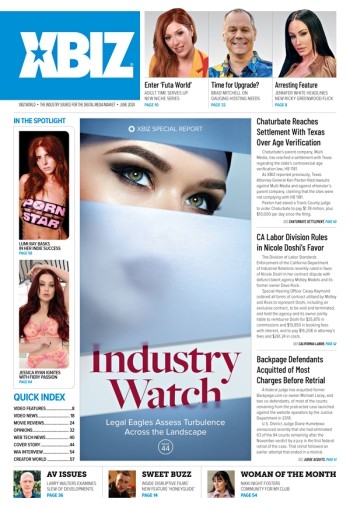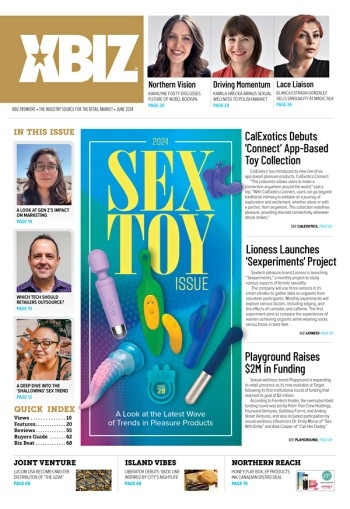It’s no real surprise that banks and card brands label our industry as “high-risk.” When it comes to banking, that label takes the form of a Merchant Category Code (MCC). So, what makes MCCs scary?
There are hundreds of MCCs. They are four-digit numbers that help acquirers, issuers and card brands better understand what is being processed through the network by describing the type of goods or services provided. The code is set by the International Organization for Standardization, and card processors are responsible for assigning an MCC to a merchant at the start of their relationship. When a certain business type tends to create higher chargebacks and fraud, however, banks issue “high-risk” MCCs, which can impact approval rates.
Keep your chargeback and fraud rates low and have a well-documented risk management policy which details your fraud strategy and refund policy.
The adult industry’s code is 5967, which denotes “direct marketing inbound.” How the adult industry ended up under this category, I have no idea. It’s fallen under that classification my entire career in this business, and that’s 22 years! The important thing is, MCC 5967 stamps adult businesses as “high-risk.”
Back in 2014, the U.S. government put Operation Choke Point into place. It identified certain industries as high-risk and placed more scrutiny on banks supporting those industries. Banks began to turn away business or close accounts identified as such, making it more difficult for businesses to obtain banking facilities. In 2017, the Trump administration ended Operation Choke Point, stating that it was not eliminating risk but was instead discriminating against legal businesses.
HOW DID I GET LABELED WITH A HIGH-RISK MCC CODE?
It’s easy to understand that industries like adult, firearms and payday loans would fall into a high-risk category, but there are many others, and some might surprise you. For example:
- Furniture and electronic stores selling high-priced items with delayed shipping.
- Online dating services, due to customer complaints, high chargebacks and other fraud.
- Travel services like air carriers, passenger railways, taxis, limos and cruise lines, which are susceptible to fraud and chargeback issues due to cancellations.
- Mainstream subscription services like health clubs, TV or radio subscriptions, due to negative options which can be deceptive to the consumer and cause chargebacks.
- Gambling, including betting, casino, lottery and wagers since there can be legal challenges and reputational concerns.
- CBD, vape, cigarettes and nutrition due to the question of whether the product is legal in a particular jurisdiction.
- High-volume and high-price-point merchants, including things like precious stones, metals, watches, jewelry, mobile homes and high-end rentals.
RISKY RELATIONSHIPS
Basically, high-risk MCCs come with higher billing rates that are passed along by acquirers willing to accept the additional risk. The adult MCC code can impact your approval rates by 5-10%. When the issuing bank deems the 5967 transaction as risky and will not approve it, the consumer is then left to contact their bank to ask why and let the bank know they want the purchase to go through. If a bank or a merchant represents the business to be different from the code it was assigned, card brands will consider this miscoding. Fines can be passed on to the merchant and the merchant account can be closed.
DO ACQUIRERS AND BANKS LIKE WORKING WITH ADULT?
Many acquirers do enjoy working with adult merchants because of the higher margins they can earn from the processing. Good adult merchants also have very low chargeback and fraud rates, making them desirable customers for many banks. Banks solely focused on mainstream processing face a very competitive market, and need massive volume to be profitable. So, if banks like working with adult merchants and most adult merchants have low chargebacks, why is our business model deemed high-risk?
Unfortunately, it is reputational damage that hurts our industry. The reputational concerns have impacted the card brands as well. Last October, Mastercard implemented its most extensive content-monitoring and age-verification regulations in several years, to help address reputational concerns. I suspect Visa will mirror that same regulation soon.
STEPS TO OVERCOMING REPUTATIONAL CONCERNS
What can we do to improve and overcome the reputational concerns acquiring banks and banking partners have? Go out of your way to be compliant. Here are a few things you should consider:
- Keep your content policies up to date. Even if you produce content or purchase content, have an internal policy to ensure all content is compliant with bank and credit card company rules.
- If you’re a cam site or fan site, or any other type of business that focuses on user-generated content, invest in artificial intelligence tools or software to help your human moderators.
- If you have user-generated content, have a strong age-verification solution in place for content creators. Be sure you are leveraging a third-party solution to help you validate the driver’s licenses or passports they provide.
- Keep your chargeback and fraud rates low and have a well-documented risk management policy which details your fraud strategy and refund policy.
- Be sure to include a content removal link on your site. This is per the Mastercard regulations; there must be a way for end users to report unacceptable content. You must also provide reports on these requests to your acquirer or payment facilitator. Keep these reports on file so that if problematic content gets identified by your acquirer or card brand, you can show that you are acting on content complaints and might have already self-identified the problem.
While all this seems like extra work, if you can present a strong risk management strategy to your acquirer, it will help them continue to feel comfortable supporting your business. If you have a problem, show that you have a strong process in place to handle it. This will help you get through the issue and help you keep your processing arrangements intact. MCC codes are not going away, but knowing what they are and how they impact your type of business can make them less scary.
Cathy Beardsley is president and CEO of Segpay, a merchant services provider offering a wide range of custom financial solutions including payment facilitator, direct merchant accounts and secure gateway services. Under her direction, Segpay has become one of four companies approved by Visa to operate as a high-risk internet payment services provider. Segpay offers secure turnkey solutions to accept online payments, with a guarantee that funds are kept safe and protected with its proprietary Fraud Mitigation System and customer service and support. For any questions or help, contact sales@segpay.com or compliance@segpay.com.






